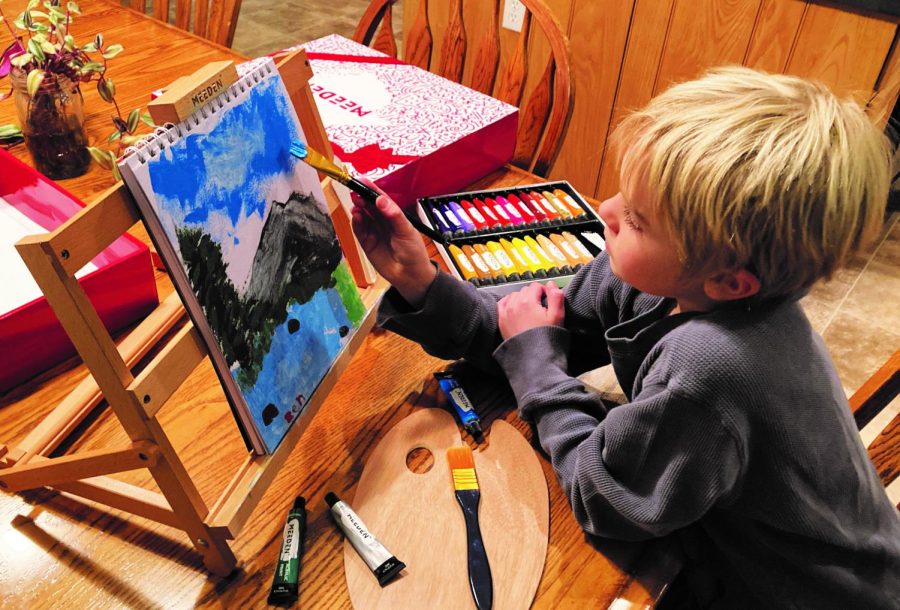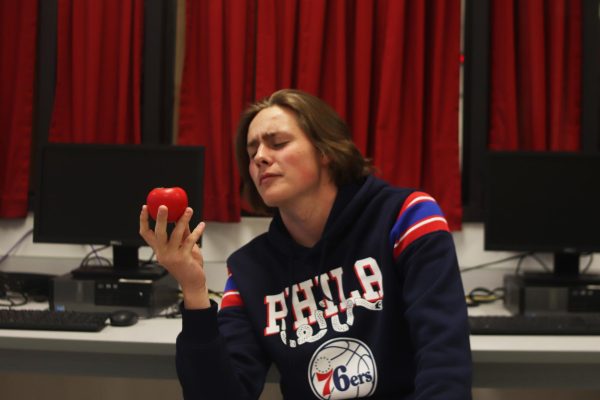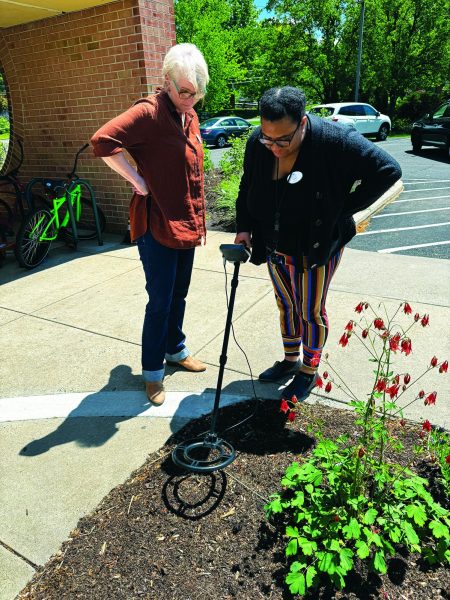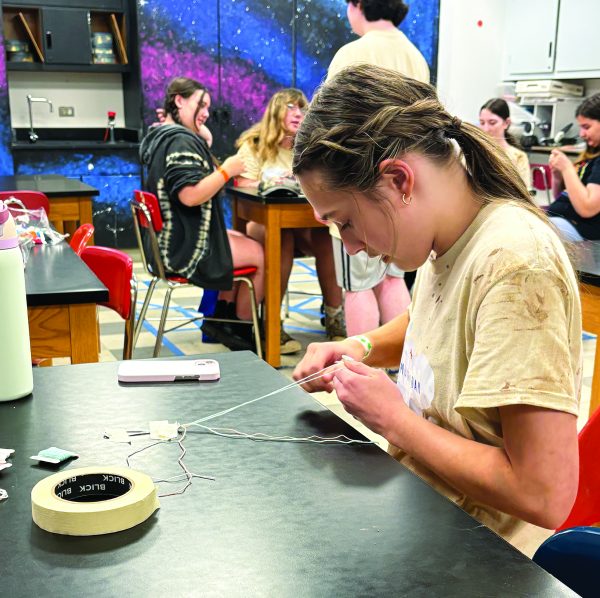NFTs make millions, to the confusion of many
A recent buzz in the non-fungible token (NFT) marketplace has led to a huge increase in the popularity and success of creators. Some creators have managed to earn themselves millions off of their creative digital images.
Making millions…Painting a Bob Ross style painting, painter Ben Godshall could be unknowingly making a popular NFT. In the future Godshall could upload this painting online to make it an NFT.
Non Fungible Tokens (NFTs) have recently hit an all time high in popularity and many people are taking advantage of this opportunity.
According to “The Verge” writer Mitchell Clark, NFTs are basically a unique type of cryptocurrency without a set value.
Clark compares buying and selling NFTs to a more complicated version of trading cards.
What gives these “trading cards” their value is a bit open ended. The original price is chosen by the creator, however the person who buys that NFT can sell it for more if they wanted to. The hope is that the NFT will rise in value as it becomes more coveted by collectors over time.
Although an NFT can technically be anything digital, (such as drawings, music and video clips) the major excitement has recently been about digital art.
Junior Anjolie Ware and senior Oisin Carolan are two students who are interested in NFTs and the NFT community.
According to Carolan, he knows of some people who have “blown up” off of selling NFTs which motivates him to be involved in the NFT community.
“I haven’t actually sold anything as an NFT myself, but that’s my plan for next year,” Carolan said.
Carolan is hopeful that his visual art may eventually be sold as an NFT.
Ware also has personal experience with the NFT community, mainly through her father.
“My dad got really into NFTs last year with NBA top shot, which is kind of like trading basketball cards, but they’re digital,” Ware said. “Then, he kind of went through and found the art community.”
Other students have also found an interest in NFTs, however not all see them as an innovative and useful market.
Freshman Elizabeth Kane personally believes that the NFT marketplace will last no longer than a few years and that NFTs “have no actual worth and are a scam.”
“They have no currency backing them. So you can’t exchange them back to the original person to get your original worth back,” Kane said.
Sophomore Mason Hendricks is of like mind.
“I don’t think they’re really a viable investment, it’s really kind of a pyramid scheme,” Hendricks said. “For the most part, it’s just funneling money to people at the top for buying low investment tokens, it’s not a good idea to invest in them.”
Amidst these strong opinions, whether they be positive or negative, are students who either don’t have a firm grasp of NFTs or don’t have an opinion on them.
Among these students with less unwavering opinions is sophomore Janmartel Fonrouge-Benet. Fonrouge-Benet says he hasn’t done much research on, or experimented at all with, NFTs.
“My cousin bought an NFT a while ago and it’s still valued at 15 cents,” Fonrouge-Benet said.
Even some students who aren’t active in the NFT community have links to the modern craze.







